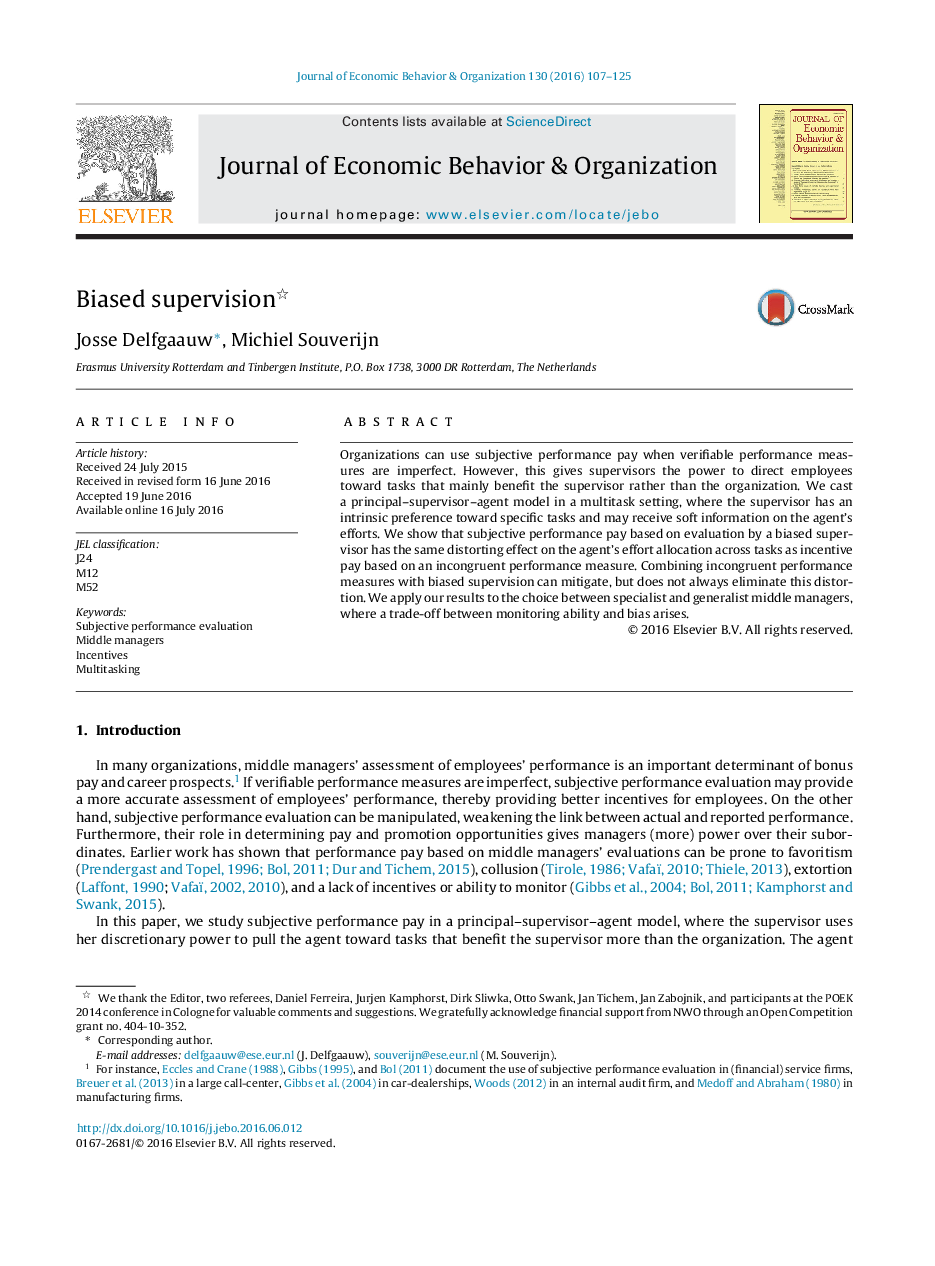| Article ID | Journal | Published Year | Pages | File Type |
|---|---|---|---|---|
| 7242741 | Journal of Economic Behavior & Organization | 2016 | 19 Pages |
Abstract
Organizations can use subjective performance pay when verifiable performance measures are imperfect. However, this gives supervisors the power to direct employees toward tasks that mainly benefit the supervisor rather than the organization. We cast a principal-supervisor-agent model in a multitask setting, where the supervisor has an intrinsic preference toward specific tasks and may receive soft information on the agent's efforts. We show that subjective performance pay based on evaluation by a biased supervisor has the same distorting effect on the agent's effort allocation across tasks as incentive pay based on an incongruent performance measure. Combining incongruent performance measures with biased supervision can mitigate, but does not always eliminate this distortion. We apply our results to the choice between specialist and generalist middle managers, where a trade-off between monitoring ability and bias arises.
Related Topics
Social Sciences and Humanities
Economics, Econometrics and Finance
Economics and Econometrics
Authors
Josse Delfgaauw, Michiel Souverijn,
